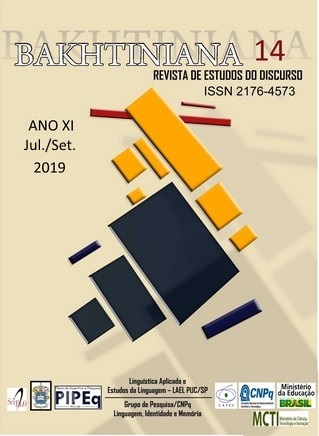Dialogism, Polyphony, Chronotope and the Grotesque in Krapp’s Last Tape: a Bakhtinian reading
Keywords:
Samuel Beckett, Dialogism, Polyphony, Chronotope, GrotesqueAbstract
This article aims to present an analysis of Samuel Beckett’s Krapp’s Last Tape, based on theoretical concepts from the writings of Russian literature theorist Mikhail Bakhtin, such as dialogism, polyphony, chronotope and grotesque in order to investigate the voices present in the play, according to the dramaturgical structure created by Samuel Beckett. Such concepts will serve as a support for a reflection that seeks to understand the relations between Krapp and his alterities as well as the games and conflicts developed through the different selves of the different Krapps present in the text, sprung from the materiality of his recordings. It will focus on the space-time question proposed by Beckett in the play, as well as the grotesque characterization of Krapp and its relation to the genesis of the character, within what we call in our research of poetics of failure. This work was originally presented as part of our master’s thesis.








